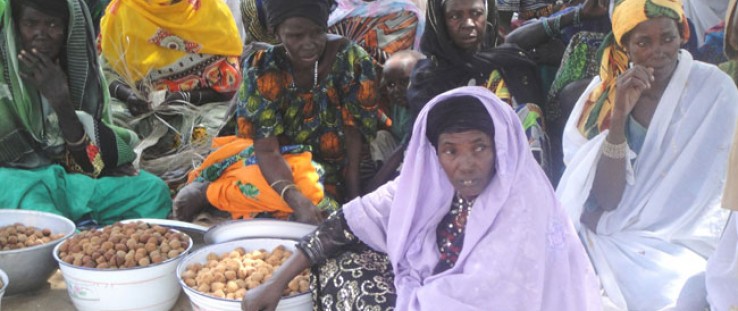 Safia Ousman, mother of seven, and other participants of a successful agro-enterprise group supported by USAID and Catholic Relief Services.
Tahirou Gouro for Catholic Relief Services
Safia Ousman, mother of seven, and other participants of a successful agro-enterprise group supported by USAID and Catholic Relief Services.
Tahirou Gouro for Catholic Relief Services
 Safia Ousman, mother of seven, and other participants of a successful agro-enterprise group supported by USAID and Catholic Relief Services.
Tahirou Gouro for Catholic Relief Services
Safia Ousman, mother of seven, and other participants of a successful agro-enterprise group supported by USAID and Catholic Relief Services.
Tahirou Gouro for Catholic Relief Services
To Americans, peanuts are part of the typical diet—long a key ingredient in children’s school lunches. But to women farmers in Niger, peanuts are a lifeline.
As one of the poorest countries in the world, Niger faces many challenges. Half of the population does not have enough food to eat on a regular basis. Nigerien women, in particular, lead difficult lives. Only 15 percent are literate, and they carry the responsibilities of childcare, food preparation and water collection. Yet women have less access to and decision-making power over resources such as income, agriculture and land.
Because women are particularly vulnerable to food insecurity, USAID and its partners launched a food security activity in the Dosso, Tahoua and Zinder regions of Niger in 2007. The program targeted 150,000 people from 140 of the most vulnerable rural Nigerien communities, with a particular focus on providing women the tools to support their families.
One key effort helped rural women form agro-enterprise groups that learn to process raw agricultural products such as peanuts into higher value products to sell, such as cakes, oils and peanut butter. The women also receive intensive training in the basic principles of business planning and management.
Safia Ousman, a 40-year-old housewife and mother of seven, lives in Boubaram, a small rural village in Niger that is regularly hit by devastating food and nutrition crises. Ousman is one of many rural women in Niger with little access to land who have no other means to connect to the local economy due to family and community responsibilities, and who must stay close to home rather than engage with the local markets. She says her agro-enterprise group, which processes and markets peanut products, changed her life.
“At first I thought it was a joke, but I can assure you that this was the best decision of my life,” Ousman said. “I was able to start another business from the profits already generated by this activity. Our household production will be high this year, as I was able to hire labor to make my own farm.”
“It is with great pleasure that I now contribute alongside my husband to family expenses,” she added.
Niger is one of a number of countries in the Sahel region of West Africa that frequently experience food insecurity due to inadequate harvests caused by recurrent droughts, and this year is no different. In addition to poor harvests, extreme poverty, high food prices, insect infestation and conflict spilling over from Mali turned Niger into a real crisis in 2012. Unfortunately, communities in Niger are ill-equipped to respond to and recover from these shocks and are often trapped in a cycle of poverty and food insecurity.
But through new resilience programming that will focus, in part, on involving women in alternative income-generating activities and ensuring that they are included in learning about new value-adding technologies, USAID aims to help women like Ousman to move from a cycle of poverty and onto a pathway towards development.
If Ousman were to simply harvest the peanuts and sell them, she would earn 13,000 CFA (or $26) per 50 kilogram bag. Selling them as processed cakes or oils, however, earns her roughly 40 percent more: 18,000-20,000 CFA (or $36-$40) per 50 kilogram bag.
Furthermore, the agro-enterprise group creates a network of support and solidarity and functions as an internal lending network. The profits stay in the group and women can then take out loans to start new businesses, as Ousman has done.
With a real focus on adding value to crops grown in the community, such as peanuts and sesame, USAID and its partners have helped women develop thriving small businesses; and by jointly marketing their products, have helped the women fetch better prices for them.
“In many cases, these women entrepreneurs don’t even have to leave their communities to sell their products. The products are in such high demand, that the buyers come to [the] village to purchase the highly valued peanut oil,” said Rita Hudson, a Food for Peace officer with USAID. “This is important for women such as Safia, who may not be able to travel outside the community to market their products.”
“By investing in the development of agro-businesses, families will have a more consistent source of food and income throughout any given year,” Hudson added. “In the long term, these activities help communities withstand future food crises, as they will surely occur.”
Kara Cherniga is with Catholic Relief Services.







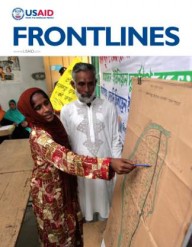

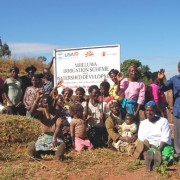
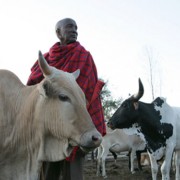
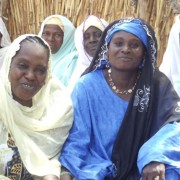
Comment
Make a general inquiry or suggest an improvement.